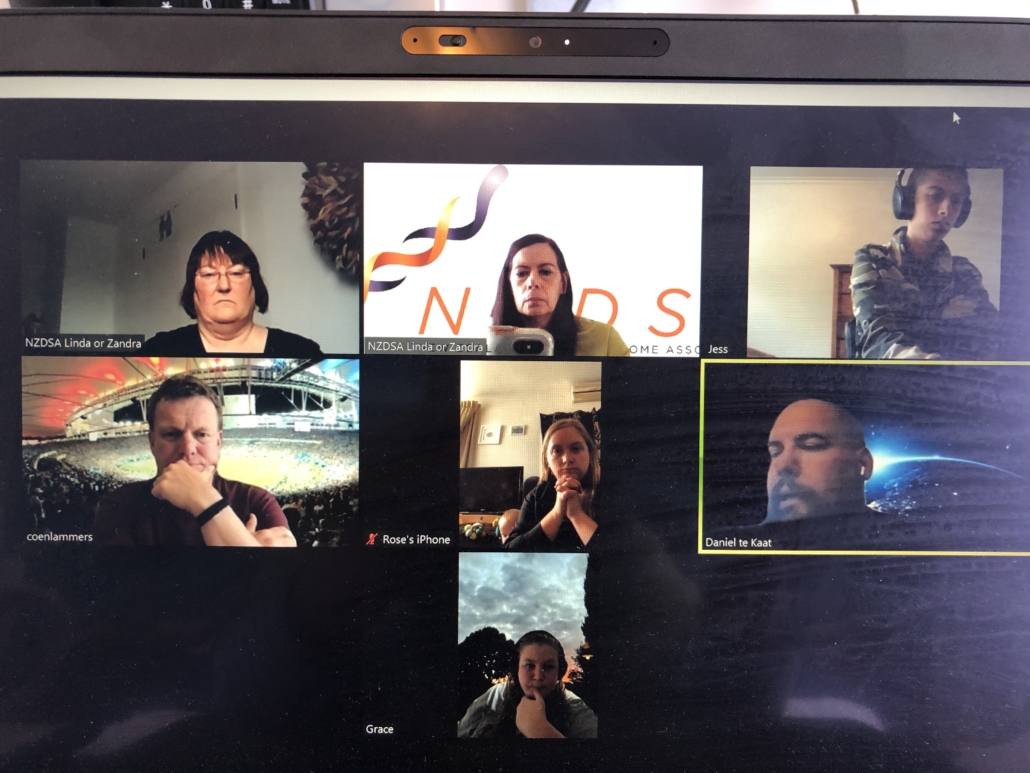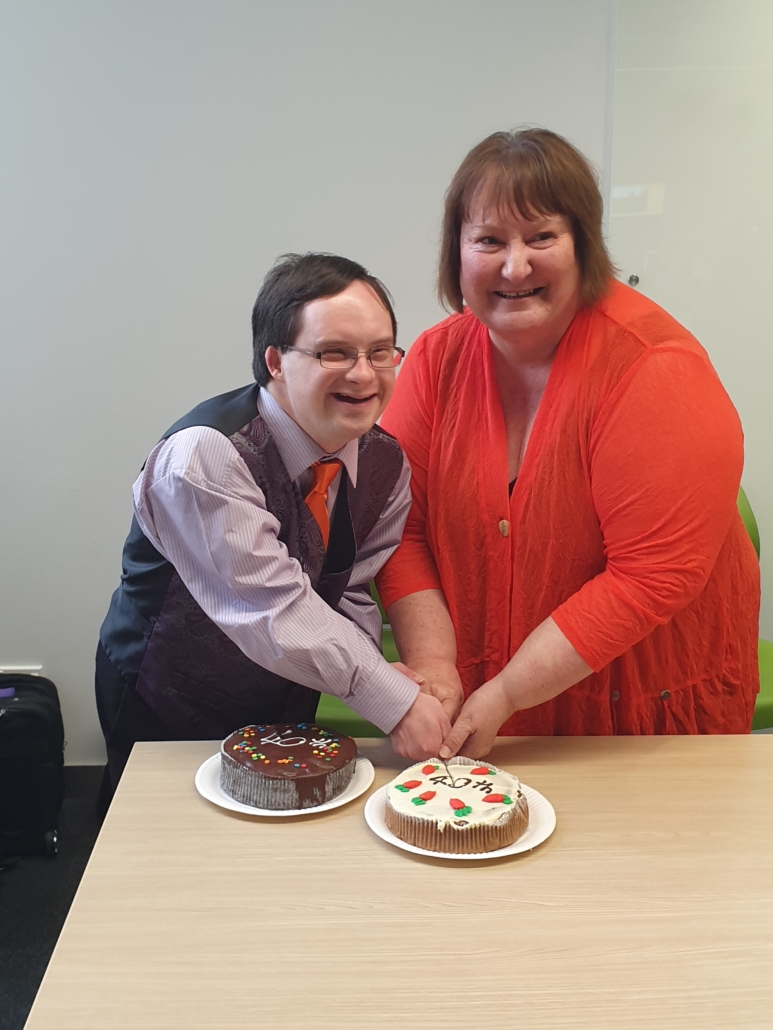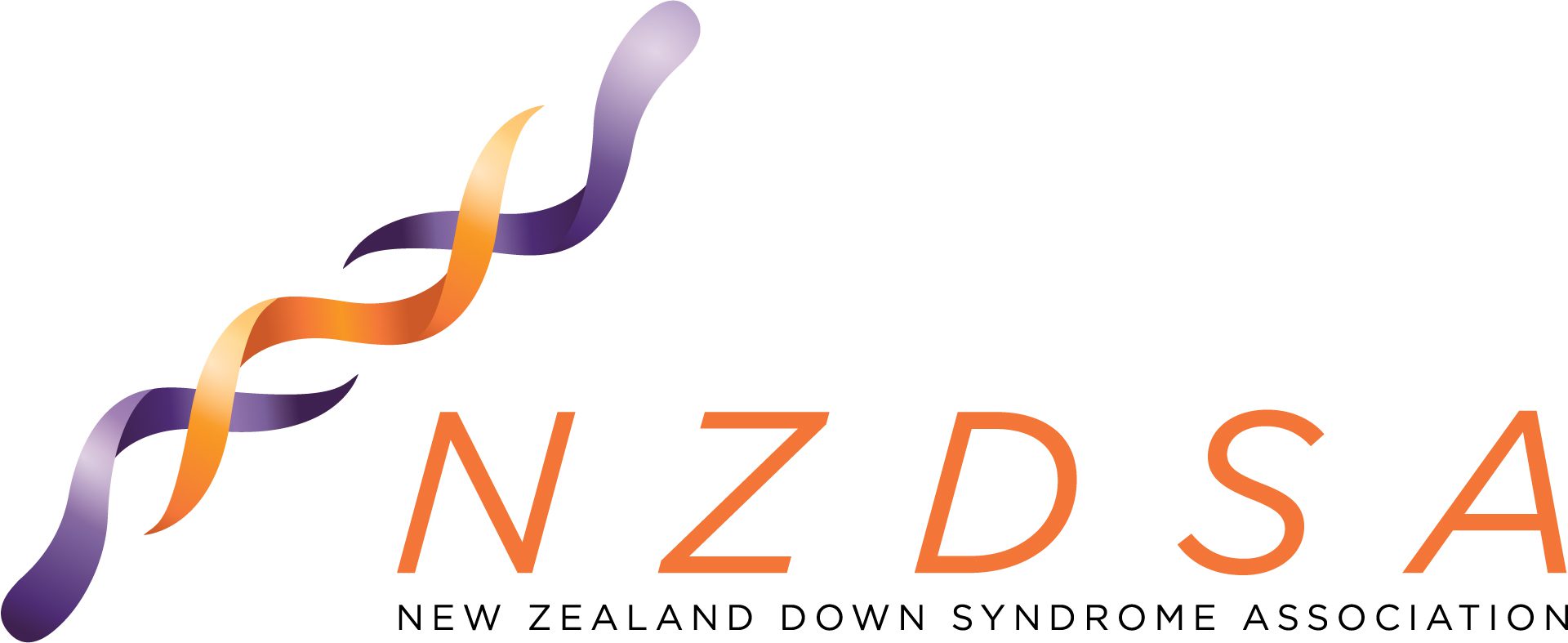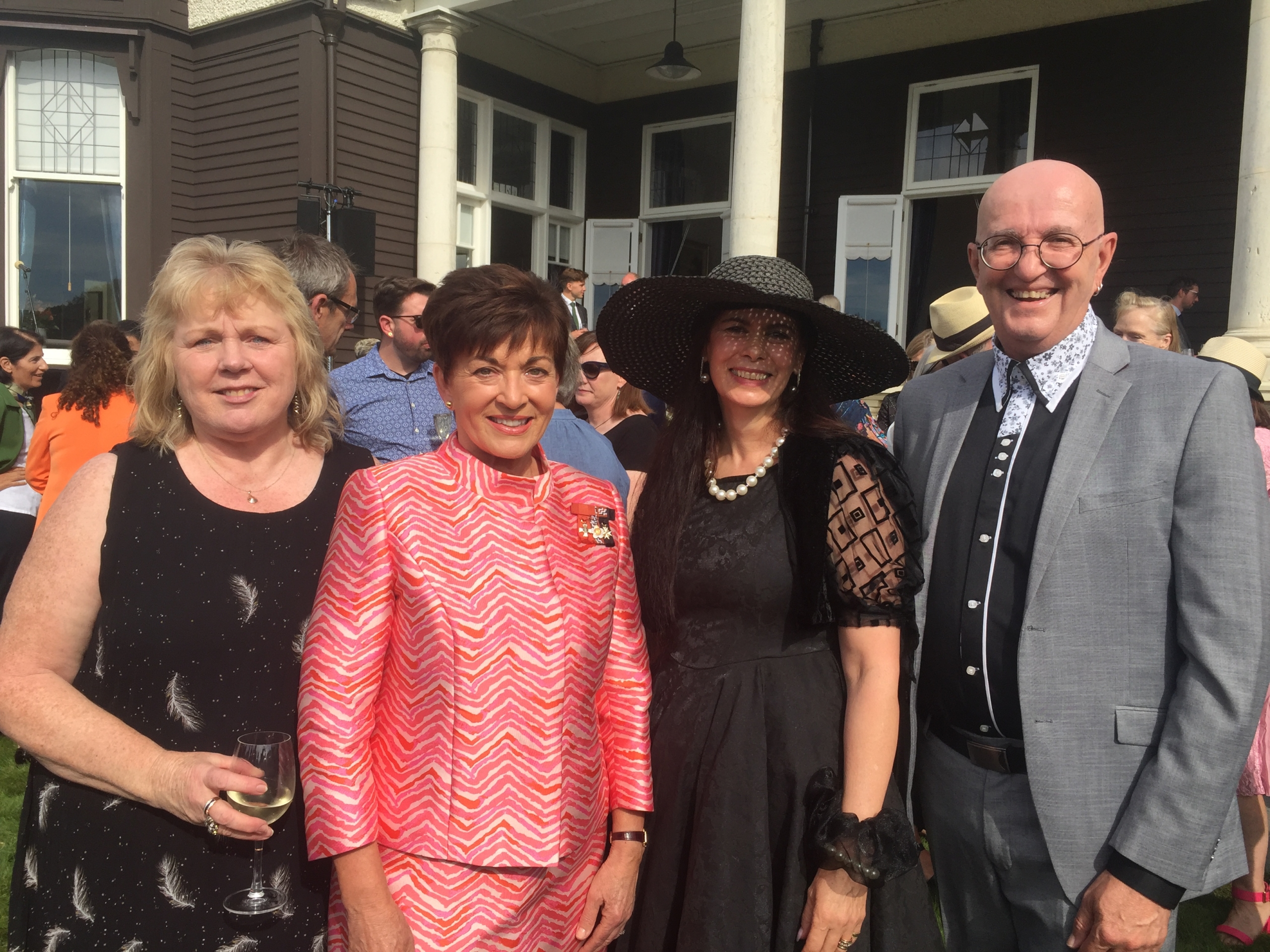National Executive Officer Zandra Vaccarino is frequently asked what the NZDSA does. To provide some more clarity she will share in each 2021 edition of CHAT 21, some of the things that the NZDSA does.
The NZDSA work programme is driven by our mission to work alongside families, whānau and carers to support and empower people with Down syndrome to realise their potential and aspirations through all life stages and within all communities.
The NZDSA’s mission means that the scope of our work is broad, but the guiding principle is to provide support, information and advocacy at a national level. Our members might be familiar with our 0800 number, our website, CHAT 21, E-news or our social media platform but be less aware of the work that we do at a national systemic advocacy level. National systemic advocacy work might not always be visible, it can be time-consuming and achieving outcomes can be slow, but it is extremely valuable as it is the means to influence changes in policy and processes so that all people with Down syndrome can benefit and enjoy more equitable access to the same rights as all New Zealanders.
Some of the NZDSA’s national systemic advocacy work includes attending national stakeholder meetings to ensure that people with Down syndrome and their family and whānau are represented.
We collaborate with other organisations so that we can keep our members informed of current issues, collaborating to promote inclusive practices and working on submissions so that people with Down syndrome and their family and whānau are considered in decision-making. Recent examples of the NZDSA’s national systemic advocacy include
- The NZDSA collaborating with People First and the Donald Beasley Institute to prepare a submission on the Court-appointed Communication Assistance Quality Framework – consultation
- The NZDSA attending the Abuse in Care Royal Commission of Inquiry which I have reported on below.
- The ongoing advocacy work we are doing in the COVID-19 space which I have also shared below.
A key aspect of national systemic advocacy work is to engage with our members to find out how they feel about a particular issue, but often the turnaround time for consultation and feedback is very short and the only means to share and gain information is via E-news. Unfortunately, not everyone reading CHAT 21 has shared their email address with the NZDSA so we cannot share important information with you or gain your thoughts on issues.
The best way of updating your information is to check your membership details via our website. We also encourage you to share with all your friends that joining the NZDSA is free and very easy – all you need to do is complete the registration form on our website. The more people we have on the database the more people we can consult with to ensure that we represent your voice when we engage in systemic advocacy.
Please share your thoughts regarding an independent review into primary school staffing which NZEI Te Riu Roa has commissioned. Submissions are open until the 12th April and we will be asking our members via E-news to share their thoughts with us on this topic.

Incoming and departing NZDSA staff discuss the work in progress to support the New Zealand Down Syndrome community.
COVID-19 It is just over a year ago that New Zealand moved to Alert Level 4, and the entire nation went into self-isolation.
Since our first lockdown we have adapted to living and working in different alert levels and whilst we hoped to be free of the tyranny of the virus we still find ourselves bouncing between alert levels and needing to find ways of moving forward in these turbulent times.
The NZDSA has kept monitoring the impact of COVID-19 on people with Down syndrome to ensure that we can advocate effectively for our membership. The research is indicating extremely disturbing health outcomes for people with Down syndrome and learning disabilities, so the NZDSA decided to take a cautionary approach to face-to-face events and we will only host events when all of New Zealand is at level 1.
Unfortunately, this meant that once again we could not meet to celebrate our favourite event, World Down Syndrome Day. We wanted to celebrate by aligning with the 2021 WDSD theme “Connect” so we decided to go virtual with the Big Connect.
The Big Connect was a great way to connect and celebrate with everyone in New Zealand and perhaps it is something we should do more often.
The NZDSA has written to the Hon Chris Hipkins, Minister for COVID-19 Response, and the Ministry of Health to advocate for people with Down syndrome to be on the priority list for the vaccine. We are also aware that all our members will want to have more information about the COVID-19 vaccine so that they can make an informed decision. We will collate relevant information and share this with you via E-news and social media.
At the Waitangi Day Celebrations at Government House I had the opportunity to have informal conversations with Dr Siouxsie Wiles and Dr Caroline McElnay to thank them for all the work they are doing in the COVID environment and to remind them that learning disabled people and particularly people with Down syndrome, should be identified as a priority group for the vaccine.
We were also pleased to report that our application to the Lottery COVID-19 Community Wellbeing Fund was successful. We didn’t receive all the funding we required but the funding we received will contribute to the costs of developing a wellbeing resource for our community.
Abuse in Care Royal Commission of Inquiry
The NZDSA recently attended a hui with other leaders from the disability sector to share our views on how the Royal Commission of Inquiry into Abuse in Care can engage with people with learning disability, neurodiversity and cognitive impairment to share their experiences of abuse and neglect with the Royal Commission.
A couple of key issues that emerged in the hui is that while the scope of the Royal Commission is on children, young people and vulnerable adults in State and faith-based care in Aotearoa New Zealand between the years 1950-1999, the Commission also wants to hear about survivor experiences before and after these dates.
The other key issue is that neglect is included in the scope of the inquiry. Many people in our community will be able to identify with neglect which is defined as failing to meet needs.
The scope of the needs includes physical, emotional, medical, educational, spiritual, and cultural. I am aware that members report incidences of the needs of their child not being met, particularly in health and educational settings.
I would encourage you to attend hui in your community to find out more about the inquiry.
The NZDSA will use E-news and social media to keep you informed about how you can contribute to the enquiry. The information gleaned will inform the Royal Commission to make recommendations in 2023 to the Governor-General on how New Zealand can better care for children, young people and vulnerable adults.
40 years NZDSA
The NZDSA National Committee met in Christchurch on the 27th and the 28th February 2021 to plan for the year and to progress our work programme.
The committee meeting was also an opportunity for the regional zone representatives on the national committee, the staff and a STRIVE representative to meet with the Christchurch Down Syndrome community to celebrate the NZDSA’s 40th anniversary and to share the work of the NZDSA.
The NZDSA hopes to meet with other communities in the country during 2021 to celebrate this milestone anniversary. It would be valuable to capture the history of the NZDSA in a special feature in our annual report so please send me photographs and special memories to include in the feature. My email is [email protected]

Linda te Kaat and STRIVE member Andrew Oswin cutting the cake to celebrate 40 years NZDSA in Christchurch recently.
Farewell to an NZDSA treasure
The NZDSA committee meeting in Christchurch also included a farewell for Linda te Kaat, the NZDSA National Administrator. Linda has worked for the NZDSA for over 17 years and has had a critical role in professionalising the organisation, accessing funding for our many projects, supporting the national committee and an even greater support to all our members.
A person who acknowledged Linda said she is a fountain of wisdom. Linda is also a dedicated advocate for people with Down syndrome and is committed to empowering people with Down syndrome and their family and whānau.
She is always making those around her laugh and she goes the extra mile to ensure that the NZDSA is able to deliver ongoing support, information and advocacy.
It is difficult to capture the significant contributions that Linda has made to the NZDSA and the wider Down syndrome community. I am sure you will join me in thanking Linda for everything and to wish her the best for the next chapter of her life.

